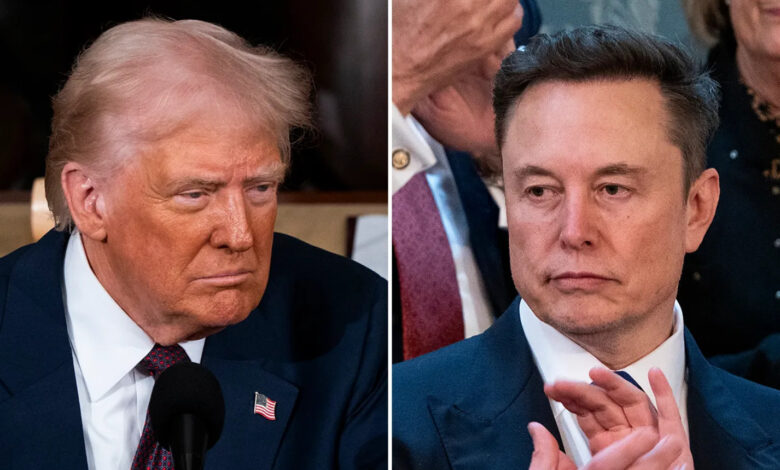Trump Will Designate Those Attacking Tesla Dealerships ‘Domestic Terrorists’

President Donald Trump on Tuesday announced that attacks on Tesla dealerships would be classified as domestic terrorism, the same day he showcased his purchase of a red Tesla at the White House.
“I will do that. I’ll do it. I’m going to stop them … Those people are going to go through a big problem when we catch them,” he said in response to a reporter’s question about attacks while standing alongside Elon Musk, the CEO of the electric vehicle maker.
Read more: Biden Adds Mystery to Cancer Diagnosis – He Comes Clean with Jaw – Dropping Admission
“We already know who some of them are,” Trump added. “We’re gonna catch ’em. They’re bad guys. They’re the same guys that screw around with our schools and universities — the same garbage.”
Trump also said that he feels the same about attacks on any American company, not just Tesla.
WATCH:
Trump on labeling people attacking Tesla dealerships as domestic terrorists:
— The Post Millennial (@TPostMillennial) March 11, 2025
“I will do that. I’ll do it. I’m going to stop them … Those people are going to go through a big problem when we catch them.” pic.twitter.com/HXbNlFclsg
Read more: BREAKING: Former White House Doctor Reveals How Long Joe Biden Has To Live
“Let me tell you, you do it to Tesla you do it to any company, you’re gonna go through hell,” Trump added.
There have been attacks on Tesla dealerships in Massachusetts, Colorado, New York, Oregon, and Seattle, Washington.
Earlier this week, the U.S. Department of Government Efficiency (DOGE), which Musk is heading up at Trump’s request, released shocking findings that the Biden-Harris administration had awarded hundreds of millions of dollars in government contracts to an unexpected group: children.
An agency announcement revealed that the Small Business Administration disbursed $312 million in payments to companies whose purported owners are under the age of 11. This disclosure comes as DOGE works to root out waste, fraud, and abuse in federal spending.
Read more: Chaos At the White House: Trump Drops Unexpected Bombshell About Biden
“While it is possible to have business arrangements where this is legal, that is highly unlikely for these 5,593 loans, as they all also used an SSN with the incorrect name,” the agency wrote. “@DOGE and @SBAgov are working together to solve this problem this week.”
During the announcement, DOGE also disclosed that an additional $333 million was distributed in 3,095 loans between 2021 and 2022 to businesses owned by individuals aged 115 or older.
In one case highlighted by Fox News, a 157-year-old business owner received a total of $36,000 in grants, including funds from the pandemic-era Paycheck Protection Program and Economic Injury Disaster Loan, which were designed to help businesses survive shutdowns.
In cases involving businesses allegedly owned by children, Biden administrators approved nearly 5,600 such loans between 2020 and 2021—almost all of which were forgiven without repayment after the owners pledged to use the funds to avoid staff layoffs.
Read more: Chaos Erupts in DC – Prominent Democrat Dies Abruptly
Now in its seventh week of investigation, DOGE has uncovered additional politically connected contracts linked to the Biden administration. One former member of the previous president’s transition team was tied to a nonprofit that secured over half a billion dollars in government grants to operate a Texas facility for migrants—a facility that was never utilized.
According to DOGE, the organization reported no other sources of revenue on its application.
All said, however, Americans’ trust in DOGE remains robust: Recent polls show that 72% back its mission, and Trump has even suggested that “DOGE dividends” could be returned to taxpayers as checks from the resulting savings.
The Trump administration recently secured a major legal win when U.S. Supreme Court Chief Justice John Roberts sided with DOGE last week regarding its freeze on $2 billion in payments to contractors for the U.S. Agency for International Development (USAID).
Officials have maintained that while they intend to complete the payments, they are currently investigating for signs of waste.
Read more: ARRESTED – White House Drops Announcement No One Saw Coming
Last week, officials with the administration said the president may consider criminal charges against USAID staffers following a bombshell investigation by DOGE that uncovered severe abuses within foreign aid programs.





